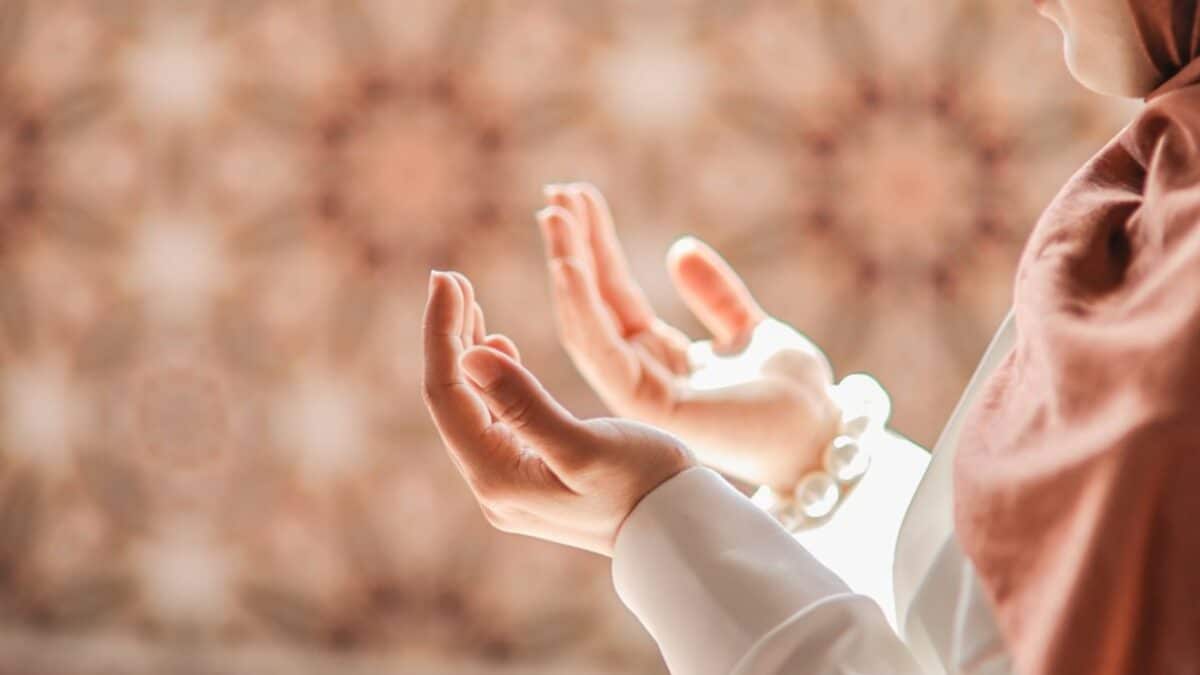Islamic etiquette, known as Adab, is the invisible architecture that shapes every moment of a Muslim’s day. Far more than a list of do’s and don’ts, it is a living spiritual grammar that teaches the tongue how to speak, the hands how to give, the eyes how to lower, and the heart how to remain constantly mindful of Allah. In the Qur’an, Allah says, “And indeed, you are of a great moral character” (68:4), referring to the Prophet Muhammad ﷺ whose everyday manners became a mercy to all worlds. By following his example, believers cultivate peaceful living—not only between themselves and others, but within their own souls.
Understanding Islamic Etiquette (Adab)
Adab is derived from the root word ’a-d-b’, which conveys the idea of refinement, courtesy, and discipline. Classical scholars define it as “putting things in their proper place.” Practically, this means:
- Aligning intentions with divine pleasure
- Regulating speech and silence
- Moderating consumption and sharing
- Respecting time, space, and the rights of every creature
In daily life, Adab is expressed through 24 specific manners that cover the span from waking to sleeping. Mastering them transforms ordinary routines into acts of worship, creating a ripple effect of tranquility, gratitude, and communal harmony.
Key Components of the 24 Daily Manners
The following framework organizes the 24 etiquettes into four natural phases of the day: Early Morning, Midday, Late Afternoon to Evening, Night. Each etiquette is paired with its Qur’anic or Prophetic source and a practical implementation tip.
Early Morning Manners (Fajr to Sunrise)
Waking with Dhikr Sunnah: Recite the dua upon waking: “Alhamdu lillah alladhi ahya…” Tip: Place the dua card on your nightstand to establish the habit. Using the Bathroom Respectfully
Enter left foot first, recite the du’a of seeking refuge, and exit right foot first while praising Allah. This teaches awareness of privacy and cleanliness. Ablution with Presence of Heart
Make every drop a witness for you on the Day of Judgement by avoiding haste. Two Rakʿahs of Fajr Sunnah “They are better than the world and what is in it” (Muslim). Perform them before checking the phone. Moderate Breakfast & Right-Hand Eating
Begin with Bismillah, eat from the nearest portion, and end with Alhamdu lillah. Avoid scrolling while chewing. Leaving Home with Istisqa (Supplication for Protection)
Say the duʿa narrated by Abu Dawud: “Bismillah, tawakkaltu ʿala Allah…”
Midday Manners (Dhuhr to ʿAsr)
Extending Salams at Work or School
The greeting “As-salamu ʿalaykum” spreads peace. Scholars recommend initiating it regardless of status. Time-Boxed Social Media Use
Set a timer for 15 minutes at lunch break to avoid ghiba (backbiting) disguised as chat. Performing Dhuhr Early & in Congregation
Arrange meetings around prayer, not vice versa. Kindness to Service Staff
A smile is sadaqa. Tip generously and thank by name. Modest Dress Maintenance
Keep a lint roller in the office drawer to uphold the Islamic identity of cleanliness. Maintaining Focus in ʿAsr Sunnah
Treat these two rakʿahs as a midday spiritual reboot—no phones inside the prayer mat.
Late Afternoon to Evening Manners (Maghrib to ʿIsha)
Breaking Bread with Family Maghrib is the glue of family life. Prophet Muhammad ﷺ said, “The best of you are the best to their families” (Tirmidhi). Sharing Food with Neighbors
A plate of curry or a box of dates knits community safety nets. Attending Salat al-Maghrib in the Masjid
The reward is folded like a book: one step to the masjid erases a sin. Evening Qur’an Recitation (Khatmah Routine)
Aim for one juz’ after Maghrib; pair it with tea and reflection. Controlling the Tongue after Sunset
The Prophet ﷺ warned that most fires of Hell are ignited by nighttime arguments. Replace debates with tasbih. ʿIsha & Tarawih Presence
Light a misbaha to count rakʿahs and avoid phone scrolling between sets.
Night Manners (Post-ʿIsha to Sleep)
Financial Reckoning & Debt Checks
Record daily expenses; settle micro-loans to friends—integrity over comfort. Shukr Journaling
Three bullets of gratitude before bed rewires the brain for contentment. Wudu Before Bed & Duʿa al-Qunut
Prophet ﷺ said, “When you go to bed, perform wudu like that for prayer” (Bukhari). Right-Side Sleeping & Dusting the Bed
Re-creates the physical Sunnah and wards off insects. Turning Off Devices 30 Minutes Before Lights Out
Reduces blue-light anxiety and protects the eyes from ‘prayer lag’. Final Dhikr & Istighfar
Recite Ayat al-Kursi and the three Quls; seal the day seeking forgiveness.
Benefits and Importance
Implementing these 24 manners yields cascading benefits across spiritual, psychological, and social domains:
Spiritual Fortification
- Taqwa (God-consciousness) is heightened when every mundane act is wrapped in remembrance.
- Barakah (blessed increase) appears in time, wealth, and relationships.
Psychological Well-Being
- Morning dhikr reduces cortisol levels, similar to mindfulness meditation.
- Gratitude journaling decreases symptoms of depression, according to 2025 studies from Stanford.
Social Harmony
- Regular salam exchanges lower workplace tension by up to 40 % (UAE Ministry of Tolerance survey).
- Families that share Maghrib meals report stronger parent-teen dialogue.
Practical Applications
Creating a Habit-Stacking Calendar
Use Google Calendar or a printable planner to assign each etiquette to a trigger:
| Time | Trigger | Manner | Reward |
|---|---|---|---|
| 5:30 a.m. | Alarm rings | Dhikr on waking | 1 sip Zamzam water |
| 12:30 p.m. | Calendar reminder | Two rakʿahs Dhuhr sunnah | 5-minute walk outside |
| 8:00 p.m. | Adhan notification | Family Maghrib meal | Shared dessert |
Technology Aids
- Muslim Pro: Set Adhan notifications with dua pop-ups.
- Habitify App: Track daily etiquette streaks.
- Forest App: Block social media during prayer windows.
Community Accountability
Create a WhatsApp “Adab Circle” where members post one photo or note related to daily manners—e.g., a neighbor’s plate returned clean, a screenshot of the gratitude journal, or a short voice note of dhikr. Weekly virtual halaqas reinforce learning.
Frequently Asked Questions
What if I miss one etiquette—does it nullify the whole day?
No. The Prophet ﷺ said, “When a servant commits a sin, then performs wudu and prays two rakʿahs, Allah erases it” (Ahmad). Treat missed manners as teachable moments; restart at the next trigger. Consistency, not perfection, is the goal.
How do I maintain these etiquettes while traveling?
Pack a travel adab kit: compact prayer mat, foldable miswak, dua cards in wallet, and an offline Qur’an app. Remember the concession (rukhsa) of combining prayers and shortening them; etiquettes adapt but do not vanish.
Is there a difference between men’s and women’s manners?
The form may differ (e.g., women praying at home), but the spiritual objectives—modesty, remembrance, kindness—are identical. Women are encouraged to attend ʿEid and Tarawih prayers when facilities allow, while men are reminded to help at home after Maghrib.
Can children be trained in all 24 manners?
Yes, through scaffolding. Ages 3-5 can learn waking dhikr by melody; ages 6-10 can manage the gratitude journal with drawings; teens can mentor younger siblings. Gamify with Adab Badges: one star for each etiquette mastered weekly.
How do I handle non-Muslim colleagues who find the greetings awkward?
Begin with a warm “Good morning, peace be with you” to bridge familiarity. Over time, the sincerity behind the greeting often sparks curiosity and mutual respect.
Are these manners relevant in secular societies?
Absolutely. Concepts like emotional intelligence, workplace ethics, and mindfulness are secular echoes of these prophetic etiquettes. When practiced sincerely, they become a subtle form of dawah through character.
Conclusion
The 24 daily Islamic manners outlined above are not ornamental extras; they are the operating system that allows faith to run smoothly in the hardware of everyday life. By integrating dhikr, cleanliness, courtesy, and gratitude into micro-habits, Muslims transform every tick of the clock into an audible heartbeat of worship
























Post Comment